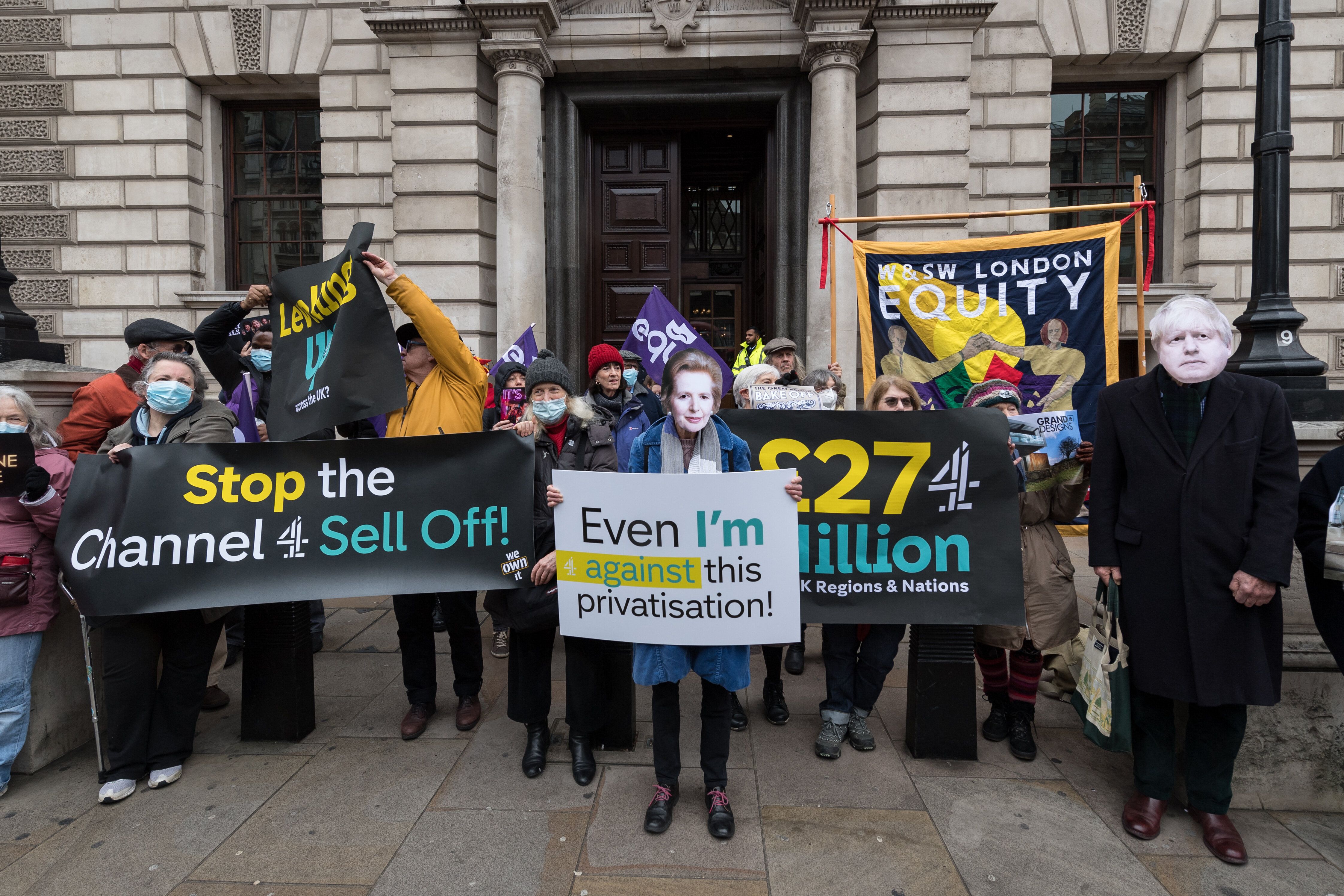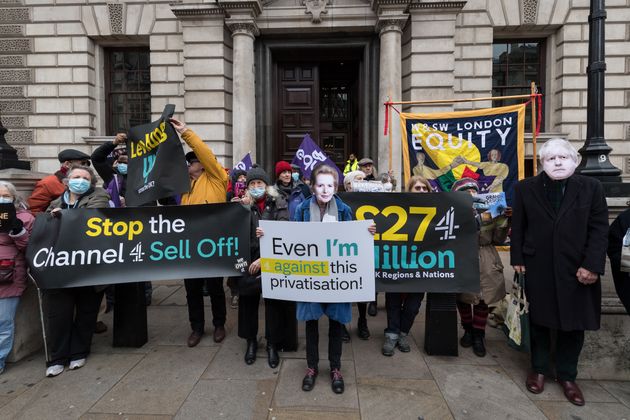The government’s decision to press ahead with plans to privatise Channel 4 has been condemned as “very unconservative” by a senior Tory MP.
The channel was launched in 1982 as a publicly-owned, commercially-funded public service broadcaster with a remit to deliver content to under-served audiences.
It does not receive public funding but is ultimately owned by the government, with all money going back into the broadcaster, which commissions all of its programmes from independent producers.
On Monday, a statement by the Department for Digital, Culture, Media & Sport said the sell-off would allow the channel to “thrive in the face of a rapidly-changing media landscape” while a government source said the move would “remove Channel 4’s straitjacket”.
A spokesperson for Channel 4 said it was “disappointed” with the decision, but would “continue to engage” with ministers on the process to “ensure that Channel 4 continues to play its unique part in Britain’s creative ecology and national life”.
The move represents Boris Johnson’s government’s latest broadcasting shake-up after signalling it wants to find a new funding model for the BBC after the licence fee funding deal expires in 2027. Ministers have previously indicated Channel 4 could be sold off by the end of the current parliament in 2024.
The announcement faced an immediate backlash, with Labour calling it a “shameful decision” and even Conservative MPs joining the criticism.
Damian Green, Tory MP and a former Cabinet minister, said: “The sale of Channel 4 is politicians and civil servants thinking they know more about how to run a business than the people who run it. Very unconservative. Mrs Thatcher, who created it, never made that mistake.”
Conservative MP Sir Peter Bottomley said he opposes the privatisation as he feels it is “bad for the diversity of television, bad for viewers and bad for independent producers”.
Labour’s shadow culture secretary Lucy Powell described the move as “cultural vandalism”.
She said: “Selling off Channel 4, which doesn’t cost the tax-payer a penny anyway, to what is likely to be a foreign company, is cultural vandalism. It will cost jobs and opportunities in the North and Yorkshire, and hit the wider British creative economy.
“This shows that the Conservatives have run out of ideas and run out of road. Of all the issues the public wants action on, the governance of Channel 4 isn’t one.”
No price tag has been set by the government yet, but reports suggest the channel could be sold for as much as £1 billion in a process that could take several months, with the proposals needing to pass through both the House of Commons and Lords.
The government has been consulting on plans to privatise the broadcaster following concerns for its survival in the streaming era.
Culture secretary Nadine Dorries said in a tweet that she wanted the broadcaster to remain a “cherished place in British life”, but felt that government ownership was “holding Channel 4 back from competing against streaming giants like Netflix and Amazon”.
She added: “I will seek to reinvest the proceeds of the sale into levelling up the creative sector, putting money into independent production and creative skills in priority parts of the country – delivering a creative dividend for all.”
Channel 4 chief executive Alex Mahon has previously questioned the “logic” behind such a move and whether privatising the broadcaster would help with efforts to “level up” outside of London.
In an internal email to staff on Monday, Mahon said her priority was to “look after all of you and the wonderful Channel 4 spirit” following the announcement.
A spokesperson for Channel 4 said: “With over 60,000 submissions to the government’s public consultation, it is disappointing that today’s announcement has been made without formally recognising the significant public interest concerns which have been raised.
“Channel 4 has engaged in good faith with the government throughout the consultation process, demonstrating how it can continue to commission much-loved programmes from the independent sector across the UK that represent and celebrate every aspect of British life as well as increase its contribution to society, while maintaining ownership by the public.
“Recently, Channel 4 presented DCMS (the Department for Digital, Culture, Media & Sport) a real alternative to privatisation that would safeguard its future financial stability, allowing it to do significantly more for the British public, the creative industries and the economy, particularly outside London.
“This is particularly important given that the organisation is only two years into a significant commitment to drive up its impact in the UK’s nations and regions.”
The statement continued: “Channel 4 remains legally committed to its unique public service remit. The focus for the organisation will be on how we can ensure we deliver the remit to both our viewers and the British creative economy across the whole of the UK.
“The proposal to privatise Channel 4 will require a lengthy legislative process and political debate. We will of course continue to engage with DCMS, government and parliament, and do everything we can to ensure that Channel 4 continues to play its unique part in Britain’s creative ecology and national life.”






